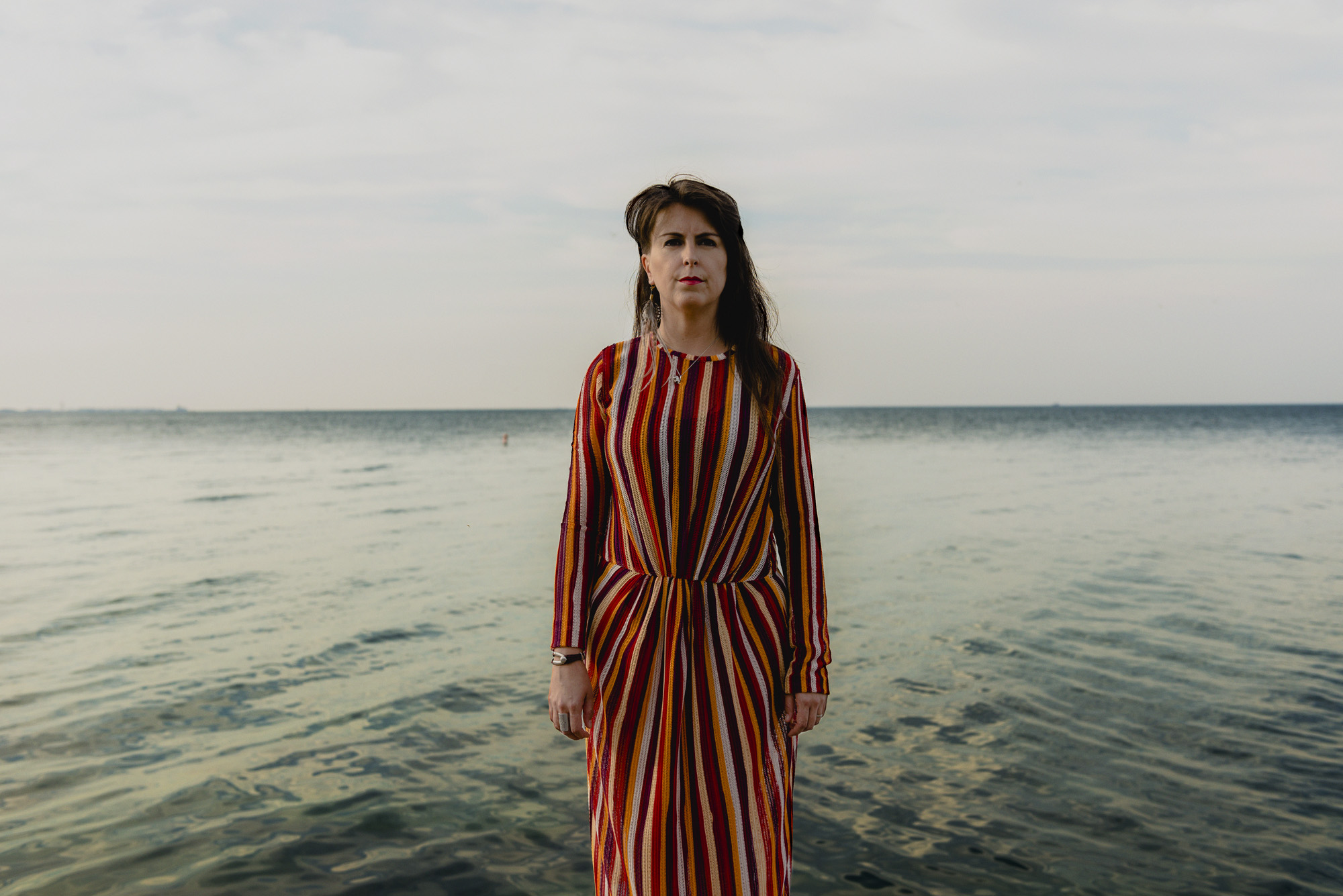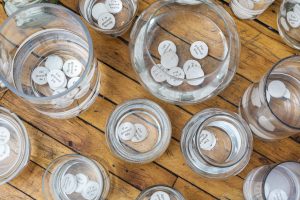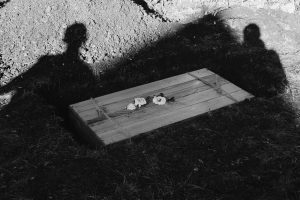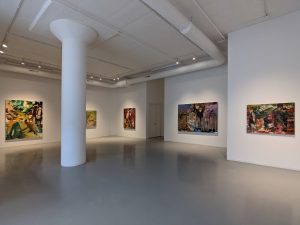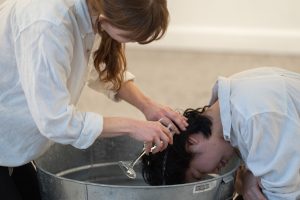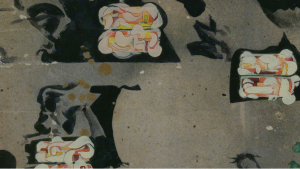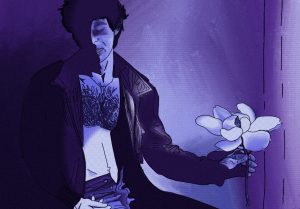Glorimar Marrero Sánchez is a self-taught, multi-disciplinary artist-director-photographer-screenwriter based in Puerto Rico. She was selected as one of the two artists in the three-month Puerto Rican Disaster Relief Residency at the University of Chicago. The residency was launched to support academics, researchers, and artists who have been severely affected or displaced by Hurricanes Irma and Maria. The program, which is a collaboration between The Center for the Study of Race, Politics, and Culture, Office of Admissions, Campus and Student Life, UChicago Arts, UChicagoGRAD, The Graham School, and the Office of the Provost, provides housing, transportation, stipends, and resources.
The following interview has been edited for clarity and length.
S. Nicole Lane: Can you begin with your background in film and photography, and where you’re from?
Glorimar Marrero Sánchez: I’m from the town of Barranquitas. It is in the mountains of Puerto Rico. I am a result of the public educational system of Puerto Rico. Then I went to University of Puerto Rico. I did a BA in art, concentration in sociology, in the Mayagüez campus. After that, I got a master’s degree in communications in Florida International University. I had the opportunity to study theater at home school in Barranquitas. In Mayagüez, I was with The Teatrum, which is a theater company of the university. So I studied sociology there, but I also had classes in theater and I was doing the whole four years getting an education as an actress. And I also did some work on photography, but not as much as acting. Then, in my master’s, it was more of a multidisciplinary program. I studied different mediums of the communications. But I’m basically a self-taught filmmaker.
At the beginning of my work I was a self-taught screenwriter and director, and then — thanks to the process that I’m having now with the feature film project that I’m working on — I have the opportunity to get to know my adviser Xenia Riveri, who is the head of the screenwriting department in the international film school in Cuba. So I went to Cuba with a program that is called Novas Miradas. I had the opportunity to direct a short film in Cuba.
When I went for my master’s, I started doing the short films with a bunch of friends in our free time. And then we moved to L.A. and, you know, we put everything in a van and we
traveled from Miami to L.A.
SNL: Oh, wow!
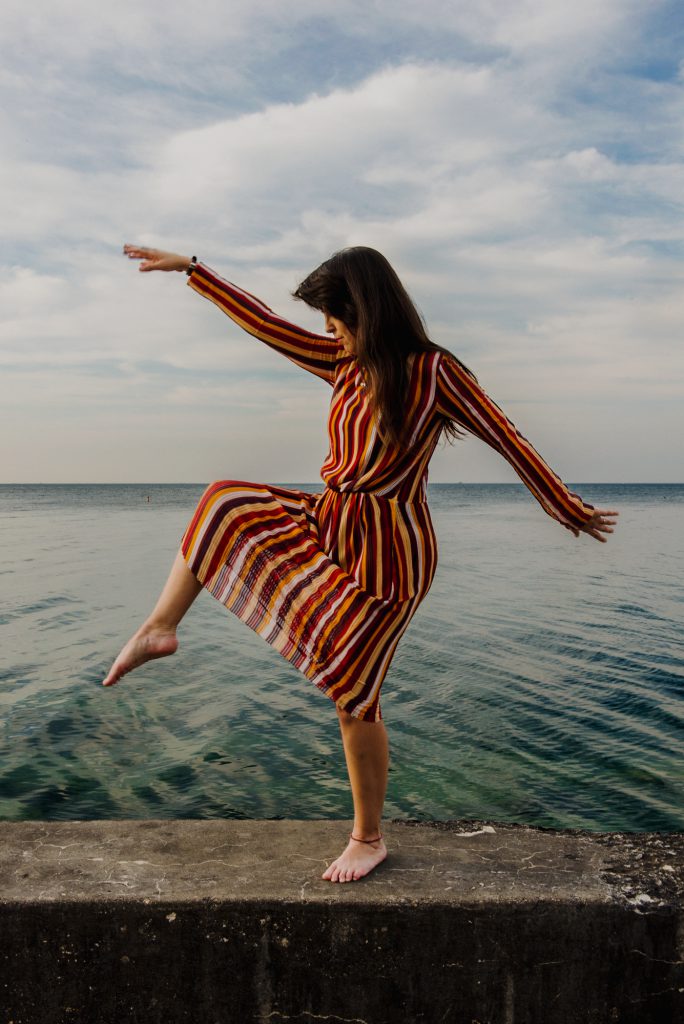
GMS: Because we wanted to be filmmakers! [both laugh] It was a tough city. So then I went to Argentina and took some time off. I went back to Puerto Rico to work with the public sector, with the Puerto Rico Film Corporation. I was managing everything related to the film fund for local projects and international co-productions. So that’s where I learned the craft of the development of projects and it was more related to the creative production point of view — executive production — it was a whole combination. That was like a very nice boot camp. But after that I decided to write my own screenplays. I finished that job then I went into the freelance community on the island. So I had more time to develop my own projects. And after that, I took a formal photography class to clarify some doubts that I had. So I was working in a multidisciplinary practice, because I was writing but I always start my projects with still photography. Photography helps me with the process of writing, not only to begin the project but also because the process of screenwriting is very hard, and it takes a lot of concentration and it takes a lot of time apart and alone, you know?
And then, with the first screenplay — the feature-length project that I’m working on right now; I can tell you a little bit more later — the advisers around the process were telling me, “This is a personal story. You should consider directing this film.” And I was like, “I’m not quite sure that I will have the skills,” you know, because I didn’t attend school for that. But I had the opportunity to direct my first short film through that process. But at the same time, in the research of that project, I found out a story that I used that’s called, “Biopsy.”
Video: Glorimar Marrero Sánchez, Biopsia, 2016. A 13-minute short film following Puerto Rican breast cancer activist Carmen Valencia. Spanish with English subtitles. Courtesy of Glorimar Marrero Sánchez.
SNL: Oh yeah, I was going to ask about that film!
GMS: That one, it’s a result of the research of the feature film. And I had the opportunity with a European film festival in Puerto Rico. They provide funding, like sponsorships. Each year they make a series of short films. So I was, that year, I think it was 2016, I was one of the filmmakers. I had the equipment and post-production services to do this short film. And I directed. So I finally realized that I really want to do this and I have the capacity and I just need to develop my skills. And that’s when I went to Cuba and stayed there for the pre-thesis process, that was a three-month program. And I was very lucky because I clarified a lot of doubts, I had the opportunity to direct my second short film. So I was gaining confidence.
It’s writing, and directing, and photography as well. I always, in the audio-visual projects, I always work with colleagues that are directors of photography. Because I’m not — I don’t consider myself, yet — an operator. I direct the project as a director and [the creator of] an original idea, but I always like to work with someone that will operate the camera because I see them as authors as well and also I like collaborations. But I want to become more savvy on working on projects on my own. I’ve been using this time for that as well. Because sometimes you want to be able to do your own projects by yourself! Just grab a bag, and get a camera and a recorder and, “Let’s go!”
SNL: [laughs] Yeah, yeah.
GMS: So I want to be able to do that. Not always needing to call a colleague for that. There are certain projects that require that kind of intimacy.
SNL: How long does it take you, roughly, from start to finish, to work on a film? Like a short film?
GMS: Well, it depends on the short film. Let’s say, “Biopsia,” I received the information from the festival that I was going to be part of the series in December. I wrote the script, let’s say, probably in two weeks, maybe one week, with reviews back and forth, you know? It wasn’t final when I submitted it. [both laugh] It’s never final.
Like here, for example, I’m shooting a documentary. I’m not quite — I haven’t been able to do the proper research, so I just grabbed the equipment from the Logan Center — which I can use as a part of the residency, so I’m very grateful for that opportunity. But I know this is going to be material for funding. Because I will be able to create a teaser, in order to be able to request money to do a proper research and to do a proper piece. That’s going to take a while. The project will maybe take a year, or maybe six months, or maybe two years!
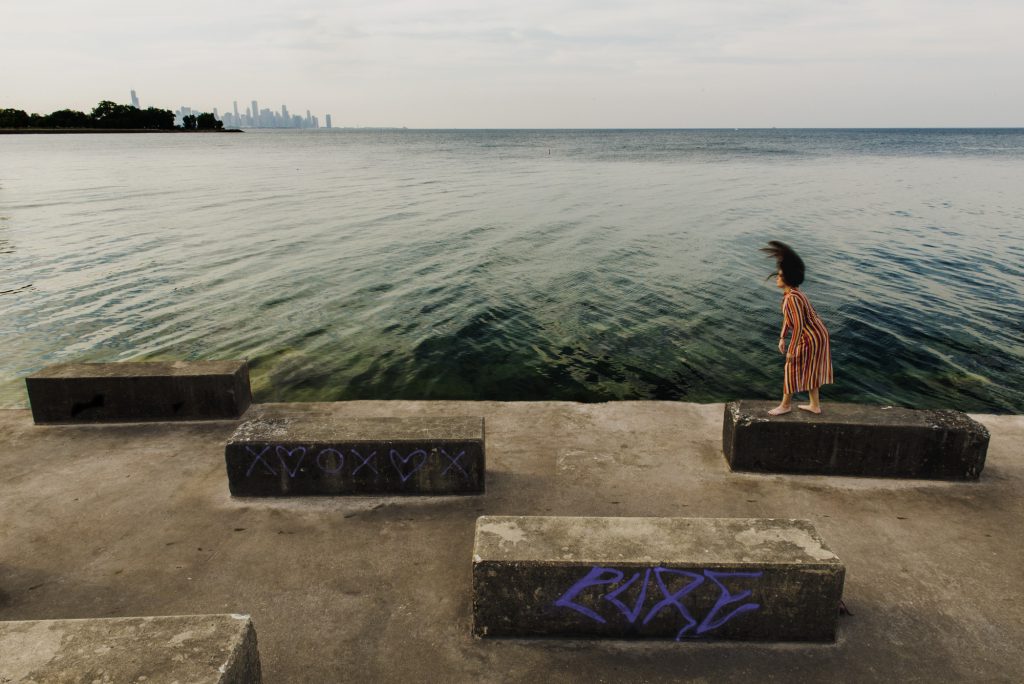
SNL: Can you talk about the documentary?
GMS: For the first time, a Puerto Rican will be opening the Pride Parade, for the first time in the history. And the Grand Marshal is a Puerto Rican that is the first openly gay professional boxer. The person that went to the committee of the Pride Parade and talked about this is an ex-political prisoner, who was in prison for 20 years, and when he got out he just dedicated his life to educate about HIV.
That is a huge step for the boxing sport, for someone to be openly gay. I feel so much respect for them. We’re going to follow them on the Puerto Rican parade, we’re going to follow them in the Pride Parade. We will probably be doing some interviews.
SNL: And did you know about this story before coming to Chicago?
GMS: No! I met him through a friend who came to Chicago after the hurricane with her family. She’s working in the Cultural Center — so she says, “Look, Glorimar, this is happening! Next week!” [both laugh] And I’m like, “Oh my god! I have equipment! Let’s do it!”
SNL: Could you talk about how a lot of your work is this way of telling the public about things that they may not be aware of? You know, like a documentary explaining what’s happening and relaying this information?
GMS: Yeah yeah yeah! Well, that was part of the mission of the research of “La Pecera” — “Fish Tank”. And a friend of mine that is a scientist, she knew I was in the island — I mean, “La Pecera” and “Biopsia” take place in Vieques. Vieques is at the east of Puerto Rico. It’s a municipality island. And over there the U.S. Navy conducted military practices for 60 years, in three quarters of the island, with active bombs.
My feature project developed there. And I went to the island to do some interviews and I met this friend of mine that is a scientist. And she said, “You have to talk to Carmen Valencia!” She plays herself, the main character, in “Biopsia.” So she said, “You have to meet her! Because she’s taking this woman — after the mammograms they do in Vieques — she takes them to the island for a biopsy!” The film tells the story of Carmen, who lost her husband because of a malpractice of the hospital in Viegues. So she said to herself, “Well, this is painful. But, I’m going to dedicate the rest of my life to help people with something related to health.” She decided to work with the women in Vieques because of the military practices of the U.S. Navy for so many years, it is the highest cancer rate in that island.
And it’s a huge event. Maybe one day they’ll have 100 mammographies, or 200. But after the results came, it’s always like a dozen that have to go for the next step, with is a biopsy.
My mother died of colon cancer, and my mother received chemo, and she told me. I remember that she had some woman from Vieques next to her, and she was going back to Vieques that same day!
Video: Glorimar Marrero Sánchez, Todavia, 2016. A 11-minute short film in which a young woman confides about her sex life with an older woman with cancer. Spanish, no subtitles.. Courtesy of Glorimar Marrero Sánchez.
SNL: Wow.
GMS: Oh my god! So that was working inside me.
SNL: Is most of this information that you make your work about, do you just know about these things that are already happening? How do you learn about all of this information?
GMS: Well, I already know it, because I’m lucky to live in Puerto Rico. When my mother died, it was such a painful experience, that I turned to writing a feature film screenplay. Because, at the beginning, I wrote only short films. So, when I developed that story, I wanted to talk about the end of life, but I didn’t want to do it in a biographical way. I’m not ready for that yet. I will do that later. So, I was very conscious about the thing that’s going on in Vieques, so I just wanted to combine the process of dying and Vieques, because Vieques is the part of Puerto Rico that is already dying, because people are dying there!
SNL: Can we talk about the residency a little bit?
GMS: The Center for the Study of Race, Politics, and Culture created this disaster relief program. They brought, I think, eight undergraduate student from the University of Puerto Rico to the University of Chicago to finish their semester. And they provide airfare, housing. You know, they were very helpful.They even sent a box with materials for hurricanes and all of that, because we are already in our hurricane season again.
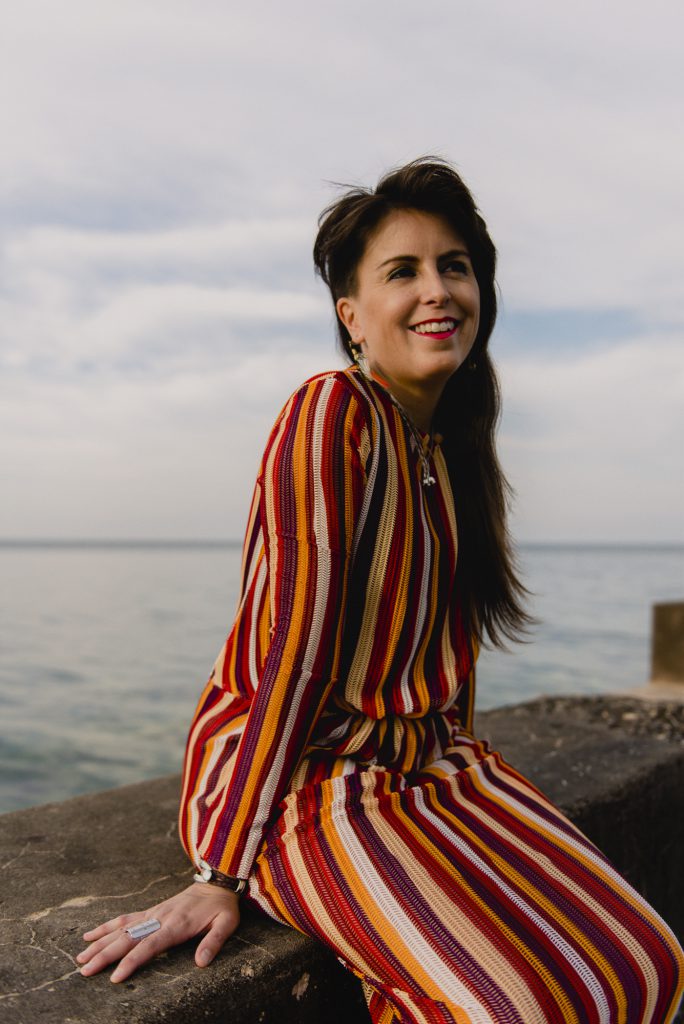
One of them is a microbiologists lost all her data on the island. She’s starting all over again here. And they brought two faculty members here to conduct research for journals. It’s like, research — this is for publishing, this is for PhD/master’s degree, and undergraduates — and the artistic residency. They select two artists, I’m one and Marisol Plard is the other one. So they created an invitation process. They also provide a stipend in order to live, and to have time to work. And access to the library. That’s very important. I’m very lucky for that, too. Oh, and an office space. I haven’t had the time to get the meetings but I’m planning that for next week. And also I’m doing a lot of research at the library.
It’s been very productive for me, and very intense. Because, you know, it’s hard to be far from home. But I make it work.
SNL: So then you’ll go back to Puerto Rico when you’re finished here?
GMS: Yes, I’m going from here to the island, straight to the beach. [Nicole laughs] But yes, I already mentioned the support of the people from here. I’m very grateful for this opportunity. Super grateful. I hope that they keep the program. I want artists to come. I really do.
Featured Image: Glorimar is facing the camera in a striped dress. Her arms are at her side and Lake Michigan is behind her. Photo by Ryan Edmund.

S. Nicole Lane is a visual artist and writer based in the South Side. Her work can be found on Playboy, Broadly, Rewire News, Healthline, and other corners of the internet, where she discusses sexual health, wellness, and the arts. Follow her on Twitter.
Photo by Jordan Levitt.
